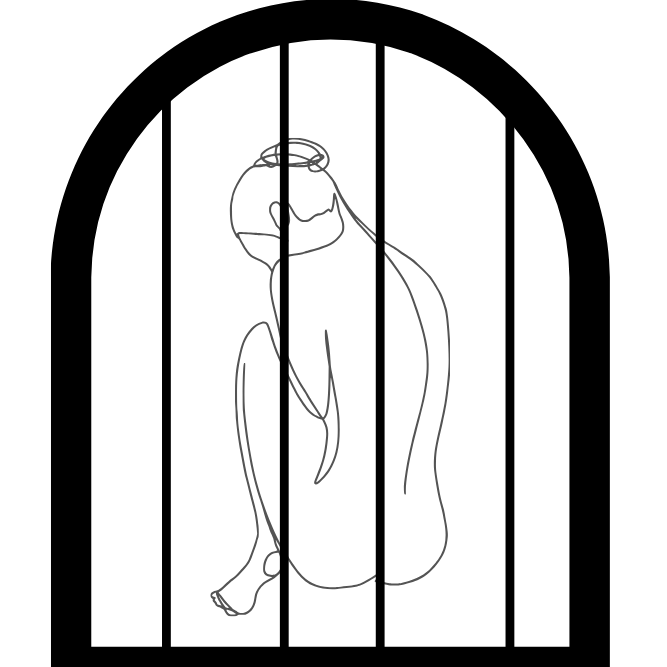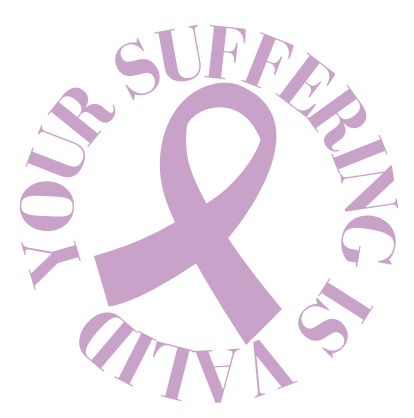[Trigger Warning: eating disorder, disordered eating, mental illness]
In the interplay between mental health and societal perceptions, the terms “disordered eating” and “eating disorders” often lead to misconceptions. Distinguishing between the two not only adds complexity, but also implies that these struggles fit within predefined boxes, fueling the silent battles that many endure.
*Picture this:* a young girl, lost in a relentless battle with herself, navigating a world that often misunderstands her struggles. This is the silent journey through disordered eating — a journey that demands recognition and understanding.
Misconceptions and Suffering in Silence
Understanding misconceptions around disordered eating is crucial. The false belief that these struggles are exclusive to overweight individuals perpetuates a harmful stereotype. My journey defies this, emphasizing that disordered eating can affect anyone, regardless of size.
Another misconception is that eating disorders are attention-seeking behaviors. In my journey, I never sought attention or disclosed my struggles.

Moreover, the idea that these disorders are just a “phase” or a choice contributes to silence and isolation. My eight-year, ongoing battle signifies the long-lasting impact of these challenges, dismantling the misconception that it’s a fleeting issue one can easily overcome.
Societal stigma, fear, and expectations around mental health create an environment where seeking support becomes daunting, perpetuating silence. Even definitions of disordered eating and eating disorders attempt to draw lines between the two, wrongly implying that validation requires meeting specific criteria.
Disordered Eating: A Spectrum of Struggles
Disordered eating and eating disorders exist on a spectrum. However, attempts to fit these challenges into predefined boxes overlook the nuanced and individual nature of mental health struggles. The impact of disordered eating, in any capacity, is profound, permeating every aspect of our relationship with ourselves and others, leaving a lasting imprint that defies classification.
Moreover, food becomes more than sustenance, serving as both a coping mechanism and a source of self-destruction. For many, it becomes a means of distraction, a false sense of control, and an escape from mental turmoil. This complex relationship with food fuels an addiction, offering a deceptive companion during moments of darkness.
I share this, not as an expert or a professional, but from personal experience, navigating the complexities of this illness. I understand the profound impact and the interconnected roots of disordered eating, often influenced by societal pressures, self-perception, and the desire for control.
Reflecting on these experiences, it’s vital to recognize the barriers that prevented me from seeking help. Stigma around mental health, financial obstacles, and a lack of awareness led me to believe my battles were not “serious enough.” This post serves as a reminder to those facing similar struggles and silent battles that your suffering is valid, and you are worthy of support.
Dark Days of Disordered Eating
Contrary to society’s link between eating disorders and being overweight, my experience challenges this stereotype. My journey began in high school, a time when I was skinny. However, I still became a victim of disordered eating. Feeling isolated and invisible, fixations on losing weight and restricting food became coping mechanisms for the internal turmoil.
Calorie Restriction: Obsession and Anxiety

Ironically, teased for being ‘too skinny,’ my high school and college years were dominated by the relentless pursuit of calorie counting and weight loss. Tracking and weighing every bite of food turned nourishment into a numerical game, causing intense anxiety, guilt, and a vicious cycle of self-hatred.
Furthermore, this obsession contradicts the belief that these behaviors are attention-seeking. On the contrary, I internalized my struggles. This reflects the reality that many individuals with eating disorders suffer in silence, devoid of any desire for external validation.
Binge Eating and Excessive Exercise: A Vicious Cycle

Severe calorie restriction led to extreme hunger, triggering episodes of binge eating. This unhealthy relationship with food intertwined with excessive exercise, serving as compensation and fueling self-destructive behaviors. How much food I ate directly correlated with how I felt about myself. Exercise became a way to earn food and offset calorie intake. I would exercise for hours a day after exceeding my calorie goals, which I continued to reduce. The binge-restrict cycle altered my brain reward system, reinforcing the negative habits and perception of food.
Fear of Weight Gain and the Scale: A Perpetual Struggle

The fear of the scale and the perpetual need to see my weight decline became an addiction. This weekly ritual determined whether I was worthy of praise or punishment. Each Sunday at 9:00 a.m., with a heart pounding in my chest, I would force myself to weigh in. This unattainable quest for a ‘perfect weight’ left me entangled in the ever-escalating pattern of disordered eating.
Mind-Body Consequences: A Symphony of Health Issues
A Harvard Health blog analogizes the mind and nutrition to a car needing proper fuel to function. Disordered eating and/or eating disorders can cause malnourishment, leading to both mental and physical health consequences. This symphony of health issues, from poor body image to hormonal imbalances, signifies the profound impact of disordered eating.
The Mental Effects
Poor Body Image and Altered Self-Perception
Struggling with poor body image and self-hatred, my existence was reduced to numbers–calories, weight, and time. This warped my self-perception; even rapid weight loss didn’t alter my feelings about myself.
Feeling uncomfortable in my skin fueled obsessive behaviors, perpetuating a self-destructive cycle. Disordered eating served as a coping mechanism, with restriction, binging, and compensation taking turns to mask underlying emotional struggles.
Social Withdrawal and Isolation
As an introvert, social withdrawal and isolation were familiar, but disordered eating intensified these feelings. Consumed by thoughts of food and exercise, I planned my entire existence around the two. Finding myself trapped in a self-imposed exile, I experienced extreme hopelessness, and, at times, suicidal thoughts.
The Physical Toll
Disordered eating takes a detrimental toll on the body, affecting every organ system in the body. Various symptoms I currently face, like feeling extremely cold and experiencing stomach pain, bloating, and hormonal imbalances, make me wonder if they stem from my challenged relationship with food.
The Ongoing Struggles with Disordered Eating
Eight years into this battle, my disordered eating behaviors have evolved and morphed into different forms. While I don’t necessarily feel “out of control,” I still struggle with obsessions. The focus has shifted from cardio to strength training and from restricting calories to gaining lean muscle mass. The journey continues–a nonlinear path marked by progress, self-acceptance, and an ongoing effort to repair and reshape my relationship with food, my body, and, ultimately, myself.
The Path to Healing from Disordered Eating
As my self-discovery journey continues, the path towards healing my relationship with food is ongoing. The lingering impact of disordered eating serves as a reminder of battles fought and the journey ahead. I strive to build a positive relationship with food, breaking free from obsessive habits.
Reflecting on the gravity of how I treated myself and its enduring impact emphasizes the seriousness and trauma of disordered eating and/or eating disorders on the mind and body. The strength and resilience of overcoming this battle are no small feats.
Support and Recovery

Sharing this journey now is not easy; it’s a vulnerable revelation. The mere thought of unveiling these personal struggles to the world is terrifying. However, I’m doing so because I want you to know that you are not alone. In this vulnerability, I find strength, hoping that my words resonate with those who may be suffering in silence. It’s a testament to the profound isolation that accompanies disordered eating, as well as the fear of judgment and the internalized shame.
If my story resonates with you, remember: you are not alone. Seeking support doesn’t require fitting into boxes or meeting specific criteria. Mental illnesses evolve, leaving lasting impacts on both the mind and body. Your suffering is valid, and seeking help, regardless of diagnostic labels, is a courageous step towards healing. Learn from my mistakes–reach out now; your journey matters, and so do you.
As you navigate this path, please know you are worthy of support. Seek it, embrace, and let the collective strength of shared stories guide you towards healing. Your journey, marked by resilience and strength, is not one you must go through alone. Take the step, reach out, and reclaim the narrative of your life from the clutches of disordered eating.



Pingback: Mental Health: Blooming from the Mud - Breanna Williams
Pingback: Health and Silent Struggles of Disordered Eating - Breanna Williams
Pingback: Denial to Discovery: Eating Disorder Awareness - Breanna Williams
Pingback: Personal Growth: A Birthday Reflection - Breanna Williams
Pingback: Mental and Physical Wellness: Resources & Support - Breanna Williams
Pingback: Breaking the Silence & Stigma: Mental Health Awareness - Breanna Williams
Pingback: Personality Paralysis: The Perils of Perfectionism - Breanna Williams
Pingback: Hidden Battle: How Inner Voices Distort My Identity - Breanna Williams